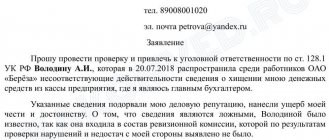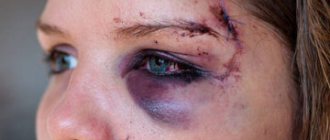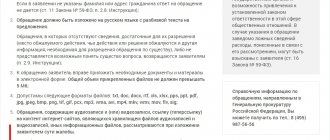Multi-channel free hotline Legal advice on criminal law. Every day from 9.00 to 21.00
Moscow and region: +7 (495) 662-44-36
St. Petersburg: +7 (812) 449-43-40
What is libel - official explanation of the Plenum of the Supreme Court of the Russian Federation
An irresponsible statement about a person can be qualified within the framework of the Criminal Code (CC) of the Russian Federation.
And paragraph 128.1 of the law provides penalties for false information disseminated publicly. Download for viewing and printing: Article 128.1. Libel - Criminal Code of the Russian Federation of June 13, 1996
Moreover, crimes in the information space are qualified on the basis of certain characteristics. In some situations, it is necessary to contact the police, and not the prosecutor's office. In addition, the victim can influence the liar by legal means through law enforcement officers and the court:
- force an apology;
- bring to justice;
- force the refutation of false information;
- sue for compensation.
Attention: coercive influence on the perpetrator is determined by a court decision.
To do this, the victim files a statement of claim for libel with the government agency (a sample is available at the court reception desk). Jurisprudence operates only with officially defined concepts. Therefore, it is necessary to explain what is meant by slander when information damages the honor and dignity of a person. This interpretation is contained in Resolution of the Plenum of the Armed Forces of the Russian Federation No. 3 dated February 24, 2005. In particular, the text of the document provides explanations regarding the methods of disseminating defamatory information. They can be like this:
- through the media, including Internet resources;
- radio and television broadcasting;
- other sources of video distribution;
- speaking in public, as well as in a narrow circle;
- a verbal message addressed to at least one person.
In addition, the RF Armed Forces drew the attention of the courts to some aggravating circumstances. These include:
- use of official position to spread slander;
- inclusion of false data regarding an individual in public statements, including: reports;
- literary works;
- speeches;
- articles;
- comments and interviews;
- grave;
Attention: filing a claim against a liar does not exclude:
- refusal to initiate a criminal case for disseminating defamatory information;
- its termination;
- making a decision on this.
Possibility of proof and responsibility
Any crime must be proven. Slander in this case is a problematic category, since its main features are the knowledge of the perpetrator that the information is unreliable and at the same time defamation of the injured person.
It is necessary to ensure that the evidence provided in the case supports the accusation made.
This type of act requires certain types of evidence that can be taken into account. These include the following:
- Messages on the phone, call details and recordings of ongoing conversations.
- If a social network was used to disseminate information, then screenshots of pages reflecting the necessary information, for example, dialogues or comments of the guilty person.
- The testimony of anyone who can act as a witness to the commission of the act in question. This option is important when the dissemination of information is oral.
- A document (letter) containing false information.
- Confirmation that the information communicated to the public is indeed false.
It is necessary to take a proper approach to this part of the complaint when it comes to turning to law enforcement agencies for protection and compensation.
Evidence also plays an important role because a counterclaim is possible. An allegedly guilty person may come forward with an accusation that he is being slandered, and then the defendant himself will appeal to the appropriate structures.
If the judge considers the evidence provided sufficient and the person brought to justice does not deny his guilt, then certain measures of influence may be applied to him:
- A simple act. The peculiarity of this type is determined by the fact that the act does not have qualifying characteristics. Accordingly, the punishment provides for the mildest, namely up to 500,000 rubles as a fine or 160 hours of compulsory work.
- Organizing a speech in front of the public to commit an offense, which is considered a more severe manifestation of slander. This option involves the use of public means, for example, the media, to post information about a person. Responsibility will also be stricter. The fine limit increases to 1,000,000, and work to 240 hours.
- Use of position in service. For example, the boss talks about how a former employee damaged products, was caught stealing, or is a hacker who sells company secrets, suffers from alcohol addiction, and so on. This behavior will also act as an aggravating factor. Liability: fine up to 2,000,000 rubles, work up to 340 hours.
- Providing information about a non-existent disease in a person. This also includes a report that he has committed a crime of a sexual nature. Such information can seriously affect a person’s life, regardless of whether it is anonymous or a familiar person; moreover, it can be regarded as an invasion of privacy, so the penalties are also becoming stricter: a fine of up to 3,000,000 rubles, work of up to 400 hours.
- Charge of serious misdemeanor. Such information also affects work and personal life. This provides for maximum sanctions, namely up to a 5,000,000 ruble fine and up to 480 hours of work.
The list of sanctions is exhaustive and limited to only two types of punishment. Both options are not permitted.
The recovery of funds in the case of slander is of a civil nature. It is enough to file a claim. The magistrate's court will not be able to bring the person to criminal liability, but will make a decision and allow him to receive a certain amount in the form of compensation.
The option under consideration is applied depending on the verdict in the criminal case. It is possible to submit a petition during the hearing. Other types of liability, for example administrative, will not apply to libel.
In addition to criminal penalties, other measures are possible. It is not possible to slander a person for free. It is possible to oblige a person to compensate for moral damage caused by the act in question.
How is slander proven?
Defamatory information causes moral and material harm to a person. His reputation suffers, clients and contractors do not want to continue maintaining relationships. Sometimes dismissal from a position follows. In such a situation, it is necessary to defend yourself. And the first stage will be collecting evidence. For information: the victim can contact various authorities. Explanations of the RF Armed Forces divide them into two groups:
- Law enforcement agencies are engaged in punishing the offender. These include:
- police;
- prosecutor's office
The court is considering stopping the spread of false information and compensation.
Evidence will be required in all instances. Therefore, the victim needs to take care of their availability. Moreover, the evidence base itself is structurally divided into two sections:
- Confirmation of the presence of information harmful to the victim. And also proof of its falsity and unreliability.
- Identifying the motive for intentionally committing an unlawful act. It can be: moral - causing suffering to the slandered;
- material - receiving benefits from false information.
Important: before submitting an application to the appropriate authority, you should think about how the matter will turn out. If the prosecutor or court refuses to satisfy the request, the accused will also have the right to file a counterclaim for libel.
Witness testimony
Defamatory information disseminated orally must be confirmed. The best way to do this is to involve witnesses. They are people who heard the slanderer. To prepare materials for law enforcement agencies, you should compile a list of witnesses with residential addresses and contact information. Please note: people will have to testify under oath in court. They will be warned about the spread of false information. It is advisable to notify those who agree to testify in favor of the plaintiff about the procedure.
Linguistic expertise
Involving experts in the case increases the chances of winning the process.
Linguistic research is carried out only by specialists who have received state permission. It is issued based on verification of the diploma and qualification level of the applicant. Expert services are paid (from 10 thousand rubles). The specialist analyzes the materials to identify phrases that discredit the applicant’s dignity and harm him. In this case, a person must correctly set the task. The expert is provided with:
- materials confirming slanderous information: oral speech must be carefully recorded;
- SMS messages;
- articles;
- letters;
- videos and more;
Hint: the task registry can be expanded and supplemented. As a result, the specialist will issue a document containing the results of the analysis of the slanderer’s words.
If there are no witnesses
A different situation arises if no one is able to confirm the spoken lie. The case lies in the definition of criminal libel. Logically:
- dissemination is persecuted ;
- if no one received it, then there is no composition.
However, this is not quite true. After all, there is a possibility that the slanderer spreads information in a circle with which the victim does not interact. In such a situation, you need to show ingenuity and foresight:
- be patient;
- prepare a voice recorder;
- record the slanderer's speech when he tries to speak again.
Any visual sources are accepted as evidence of a criminal act. If the message was published online, you should immediately take screenshots of the screen. You can take photographs of emails, notes, and other offensive remarks.
Hint: do not provoke the offender. This method will be deemed unsuitable, and the case will be closed.
The essence of the crime
The Criminal Code establishes liability for actions involving the dissemination of information about a person that is false, that is, slander. Here the honor and dignity of a person always suffers. And also such a crime involves moral harm. His restitution may also be part of the punishment.
When talking about establishing the presence of such an act, it is necessary to determine its characteristics. These include the following:
- An object. This crime is personal in nature. It encroaches on specific relationships - morality, namely reputation, dignity and honor. The moral aspect is important. The person must feel humiliated and offended, since the information to be disseminated must be exclusively defamatory.
- Objective side. This act involves the dissemination of information. The means for this can be different: the Internet, in particular social media. networks, public statements, sending information by letter, via SMS via telephone, and so on. The main thing is to cause harm to a specific person, since to slander means to commit an act against a person.
- Subject. Any person who has reached the age of criminal responsibility of 16 years and is declared sane. This could be a neighbor, a friend, other close people, and so on.
- Subjective side. It implies guilt and only in the form of direct intent. The perpetrator must want to harm the person, cause him harm by his actions, cause insult.
If these elements are present, it will be possible to file a claim for libel due to the presence of corpus delicti.
In this case, it will not matter which person the act is directed at: he is a believer, a military man, a worker, a Russian, a foreigner, or even a child. Anyone can become a victim or perpetrator in such a case.
It is important to distinguish between false denunciation and slander. The informer encroaches on the administration of justice, and not on the person. Here it is important to establish the goal of the guilty person: denunciation or dirty tricks on a specific subject.
Qualifying features occupy a special place. To slander a person using a special position or special means means aggravating the situation and increasing the punishment.
The law provides for libel associated with the following events:
- Demonstrations and performances in front of the public, using the media.
- Use of official position (deputy, administration, employees of authorized structures).
- Providing information about a non-existent dangerous disease in a person or about the commission of illegal actions of a sexual nature.
- Accusation of committing acts entailing grave consequences.
If defamation is accompanied by crimes such as threats, battery, beatings, causing physical harm to health, or danger to life, then qualification will be carried out under several articles at once in accordance with the Criminal Code of the Russian Federation.
The main condition for the existence of elements of the offense in question is knowingly false information. The slanderer must be aware that the information conveyed by him is not true.
Submit an application
An offended person is at first too upset to think rationally. And many do not know where to turn to protect their rights. And if this is not done, the situation may worsen. Suffering from slanderous statements:
- health of the victim;
- his reputation;
- both of these factors affect income levels and quality of life.
Hint: you should only try to convince the offender if you are confident in the success of the event. But first it’s worth assessing his motives. Lies are rarely spread out of stupidity or mischief.
Where to write an application
You should contact the government agency whose competence includes this crime. It's easy to understand here. To do this, you need to read paragraph 128.1 of the Criminal Code. It indicates aggravating circumstances deciphered by the RF Armed Forces. These are the criteria for choosing a law enforcement agency:
- if aggravating circumstances occurred, then the statement is sent to the police;
- in their absence - to the prosecutor's office.
Hint: it is more rational to file a lawsuit after the investigation is completed. Although, such a decision is made by the affected citizen. The claim may be sent to the court at any time.
What to write
An appeal to a government agency is drawn up in the prescribed form. This does not require a form. Just according to the rules, you should indicate the following data in the header:
- about the addressee: name of the law enforcement agency;
- the manager's full surname and initials;
- position (data will be provided in the reception or duty department;
- Full name;
The body of the application must briefly describe the essence of the situation. In addition, it is advisable to refer to the paragraph of the Criminal Code and also add the following information:
- about information discrediting honor and dignity;
- about its unreliability;
- about the damage caused;
- about slanderers in the format: full name;
- registration address;
- place of work.
The application is accompanied by confirmation, that is, the collected evidence. They can be in any format. Electronic information is recorded on removable media.
Please note: the application must list all applications. This is important for further work.
Features of contacting the police
The application form is prepared in the manner described above.
It needs to decipher the crime. As can be seen from paragraph 128.1 of the Criminal Code, in this case the act must be associated with aggravating circumstances. They are indicated in the address. Example:
“On April 23, 2021, an analysis of the dynamics of morbidity in the region was published on the website (address indicated) of the Be Healthy Internet portal. As an example, the author is Ivanov V.V. provided personal data of the clinic’s patients. Among them is my name. Attached:
- electronic copy of the publication;
- printed statement;
- screenshot of the screen for 12/23/18.
This information is not reliable. She discredits my honor and dignity, since I was not given the specified diagnosis. The author of the analysis is Ivanov V.V. spreads deliberately false information, thereby damaging my reputation.
I ask you to check the information provided and make a decision to initiate criminal prosecution for disseminating slanderous statements.
List of applications".
Attention: the police will issue the applicant with a notification coupon that the application has been accepted. And if the appeal is addressed to the prosecutor, then you need to write two copies. On the second one they will put a mark on acceptance for work.
Features of the lawsuit
The appeal is submitted to the magistrate's court at the place of registration. It is compiled according to the form described above. In addition, another line “claim price” is added to the document header. The amount depends on the requirements put forward. The claim contains the following information (except for the header described above):
- a description of the circumstances indicating: the defamatory statement itself;
- dates and places of its pronouncement (publication);
- the identity of the offender;
- witnesses and others;
Download for viewing and printing:
Sample statement of claim for criminal liability for libel and insult in the magistrate's court.
Hint: you need to attach a receipt for payment of the state duty to the claim.
Results of consideration
- The court (if Part 1 of Article 128 of the Criminal Code of the Russian Federation) or the police (Parts 2-5 of Article 128.1 of the Criminal Code of the Russian Federation) initiate a case and attract the persons involved.
- Once the information is collected by the police, it is forwarded to the magistrate for a decision on the merits.
- In court, directly during the consideration of the criminal case, a claim for compensation of funds will be investigated, at your request.
- The court is obliged to pronounce a verdict, whether acquittal or conviction, it all depends on the internal conviction of the judge.
- If you do not agree with the court decision, you can appeal it to a higher authority (regional court).
Submission order
The appeal must be brought in person to the office of the selected authority. The following subtleties should be kept in mind:
- one statement is written to the police;
- It is advisable to bring two copies to the prosecutor's office;
- and in the magistrate's court - three.
All evidence will have to be reproduced only for the court. Three identical packages of documents are submitted to this institution:
- one for the judge;
- the second for the defendant;
- the third remains with the plaintiff.
The employee will accept two packages. Within three days they will undergo a preliminary check for identity and correctness of composition. Only after this will the applicant be notified of the further progress of the proceedings. The plaintiff's copy is marked with acceptance (court stamp).
Hint: if the court does not accept the claim, then it should be worked out again and resubmitted. The reason for refusal is usually a violation of the drafting form.
Which authority to contact?
Let's figure out which institutions a citizen whose reputation has been illegally damaged can turn to.
To the police
It makes sense to contact the internal affairs bodies in the following cases:
- The person who committed the crime is not known to the victim and investigative and search activities are necessary to identify him. Once all the details of the incident have been established, the information will be sent to the courts.
- If the form of slander has additional characteristics, for example, false information was disseminated by a person using his official position, the victim must also contact the police. Since elements of defamation increase the possible punishment, such proceedings must be thoroughly investigated.
libel reports to the police
To court
Libel cases are heard by magistrates' courts because they are classified as private accusations. The claim should be filed in the court at the place of the incident.
It is worth noting that the plaintiff must be aware of the personal data of the defendant, since the procedure for filing a claim assumes this.
When filing a claim, you must remember that, according to the law, the statute of limitations for minor crimes is two years. After this time has passed, litigation is doomed to failure.
Counterclaim
Russian legislation is based on the principle of equal rights of people. This means that the accused has the opportunity to defend his position. The counterclaim is made after examining the allegations contained in the plaintiff's statement. To do this, the above work is done:
- determination of illegal facts;
- collection of evidence;
- drawing up a counterclaim and sending it to the same court.
Download for viewing and printing:
Sample counterclaim
Formation of the evidence base
If you find yourself a victim in relation to whom unpleasant rumors or speculation have been illegally spread, a citizen must first try to collect a convincing evidence base, the quality of which will determine the decision on the complaint. This is extremely relevant if, as a result of such an act of another person, the victim experienced severe stress, as a result of the unrest his health sharply deteriorated, or he suffered financial losses (for example, due to reputational losses), compensation for which he wants to achieve forcibly.
Important! The refusal to initiate a criminal case still leaves the victim the right to file a civil claim and seek compensation for moral and/or material damage.
To protect your reputation and good name, you will need to create the following evidence base:
- prepare documents that indicate that the information being disseminated is not supported by any facts. And the more such materials there are, the easier it will be to initiate a criminal case and obtain monetary compensation for losses;
- indicate the presence of a motive for committing such a crime. In most cases, the person who commits such an act has a personal interest and does it for some purpose (for example, out of personal enmity, to lure clients to himself, etc.).
Use of testimony
The presence of witnesses can largely determine the outcome of a case when the task is to bring the offender to justice for disseminating knowingly false information. Their testimony will play a big role in court, where they will be invited to testify. Witnesses can be friends, neighbors, relatives or work colleagues who were direct participants in the conflict or its involuntary spectators.
If the incident occurred on the street or in a public place where the victim had no acquaintances or friends, it is necessary to try to find witnesses and negotiate with them to testify. Due to the fact that this is not always realistic, in such situations it is better to immediately exchange contact information with passers-by in order to be able to turn to them for help and support upon immediate request.
When it is not possible to attract witnesses
The victim should not neglect to use available technical means to record the facts of the spread of slander. This can be done using an audio player, voice recorder or mobile phone and then attach such material to the complaint as evidence of an offense.
If unreliable information about a citizen has become available to the public through a video/audio recording or a written source, then a linguistic examination can be carried out to attach the expert’s opinion to the compiled document. With its help, it will be possible to identify the guilty person and achieve his punishment even in the absence of witnesses.
About statute of limitations
The law sets different deadlines for punishing the offender. They are:
- if the information is published in the media - 1 year;
- in another way - the limitation period does not apply.
Hint: the court has the right to restore the missed statute of limitations when there is a good reason for this (illness or ignorance of the existence of defamatory statements, for example).
Video: Prosecution for libel
Similar articles
- Theft of driver's license and car documents
- Responsibility for beatings
- How to correctly write and submit a complaint about personal insult
- Article of the Criminal Code of the Russian Federation for threats to kill
What can you complain about?
Not every case of dissemination of false information can become a basis for filing a complaint. The law clearly outlines the list of ways in which such information should be disseminated. In particular, a complaint for libel can be filed provided that the data became known to the general public through:
- information message on television or radio;
- The media and the Internet where the material was published;
- demonstrations on television;
- an oral message communicated by one person to another person;
- placement of information in a public report, characterization or statement addressed to a certain circle of citizens or an official.
At the same time, a violation can be classified under a more “severe” article if there are such aggravating circumstances:
- when a person took advantage of his status or official position to spread slander;
- the general public has become aware of a serious illness that is dangerous to others;
- the subject of public discussions was information about the commission of a serious criminal act by a person, which does not have official confirmation;
- dissemination was made in the form of public expression (for example, through the use of a literary work, report, etc.).
Attention! The statute of limitations for disseminating libel in the media is 1 year.
Application to initiate a criminal case in court
To open criminal proceedings, the victim must submit an application to the territorial authority.
Facts to be stated.
A properly executed document includes:
- official name and actual address of the regional branch of the court;
- personal data of the applicant, his contacts;
- a brief description of the defamatory actions indicating the method of distribution;
- information about the alleged culprit;
- a request to initiate criminal proceedings;
- contact information for persons willing to testify;
- date and signature of the victim.
7 days are allotted for consideration and verification of the application. After the specified time has passed, the magistrate calls the potential criminal, gives him a copy of the document, explains the rights of the defendant and requests information about defense witnesses.
How to calculate material losses
As a rule, the person who has suffered from libel suffers material losses. The offender is obliged to compensate them. To do this, a civil claim for material damage is added to the initiated case. The amount of the claim must be justified. Therefore, at the moment when a decision is made to protect rights with the help of law enforcement agencies, you need to set a goal - to obtain financial documents that ensure success in court.
These include:
- An invoice, a cash receipt from the clinic, if the citizen sought advice from privately practicing psychologists, psychotherapists and other specialists.
- Prescriptions, receipts from pharmacies for drugs prescribed to alleviate the consequences of a traumatic situation, relieve psychosomatic disorders, bills for treatment in a sanatorium, and so on.
- Other documents confirming monetary expenses associated with a damaged reputation, for example, expenses for moving to another locality, for publishing a refutation in the media, and so on.
- Legal expenses, such as attorney fees.
It is important that all financial costs are directly related to the consequences of the crime. .
Claim for libel: expediency and legality of the trial
The legislation of the Russian Federation provides for a different procedure for protecting the rights of persons who have suffered from illegal actions - in accordance with the severity of the offense committed. According to the provisions of the Code of Criminal Procedure, specifically Article 128.1 of the Criminal Code, libel is a crime, cases for which are initiated only if there is a statement from the victim and belongs to the category of private prosecution cases.
Filing a claim and its consideration
Based on the above, the judge has the right to refuse only if the applicant is incompetent to file a specific claim. In the absence of grounds and provided that all citizens have the right to submit an application, the judge does not have the right to refuse to accept it, since this is an offense in the context of the Civil Procedure Code. If a claim in the same case was previously rejected, then the judge also does not have the right to re-accept an application on an identical issue, since the case cannot be considered again in the same judicial division. If a judge refuses to accept a statement of claim without the possibility of re-applying to the court, such a paper will also not be accepted by any of the courts. However, if a claim for defamation is rejected due to errors in the statement, it will be accepted if they are corrected and resubmitted.
- Audio recordings of the accused’s conversation on various topics to study the accused’s speech, his intonation, and the use of obscene words;
- Papers, letters, diaries and other records for studying handwriting;
- Articles and publications in newspapers, magazines, blogs and social networks - to study the linguistic features of the accused’s speech (common phrases, phrases, construction of phrases);
We recommend reading: Renewal of permit for hunting weapons in 2020








